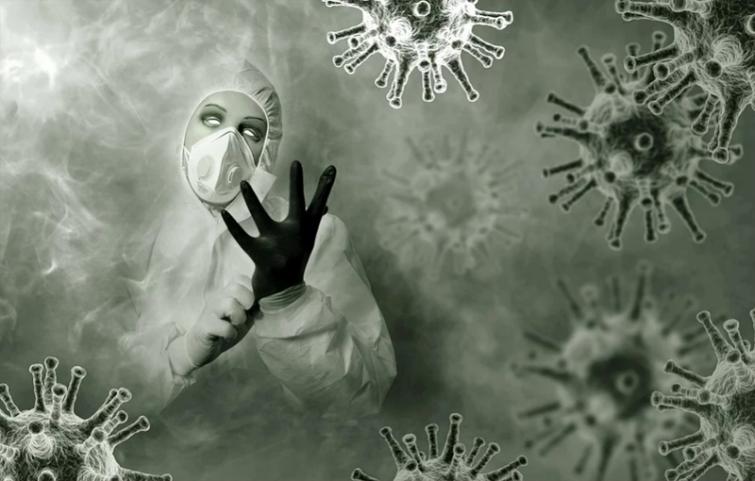
Coronavirus pandemic could have caused 40 million deaths if left unchecked: Study
London/IBNS: The outbreak of COVID-19 would likely have caused 40 million deaths this year in the absence of any preventative measures.
This is one of the findings of a new analysis by researchers at Imperial College London, which estimated the potential scale of the coronavirus pandemic across the globe, highlighting that failure to mitigate the impact could lead to huge loss of life.
The report is the twelfth to be released by The WHO Collaborating Centre for Infectious Disease Modelling within the MRC Centre for Global Infectious Disease Analysis (GIDA), Abdul Latif Jameel Institute for Disease and Emergency Analytics (J-IDEA), read the Imperial College London website.
Researchers included a number of scenarios, such as what would have happened if the world had not reacted to COVID-19 (the “unmitigated scenario”). They also included two scenarios incorporating social distancing, which result in a single-peaked epidemic (“mitigated scenarios”), and several scenarios for suppressing the spread of the disease that can have the largest overall impact in terms of reducing disease and deaths.
Dr Patrick Walker, an author of the report from Imperial, said: "We estimate that the world faces an unprecedented acute public health emergency in the coming weeks and months. Our findings suggest that all countries face a choice between intensive and costly measures to suppress transmission or risk health systems becoming rapidly overwhelmed. However, our results highlight that rapid, decisive and collective action now will save millions of lives in the next year."
According to the unmitigated scenario, if left unchecked the virus could have infected 7 billion people and caused in the region of 40 million deaths this year. Social distancing to reduce the rate of social contacts by 40 per cent, coupled with a 60 per cent reduction in social contacts among the elderly population (at highest risk) could reduce this burden by around half. However, even at this level of reduction, health systems in all countries would be rapidly overwhelmed, the modelling revealed.
In the latest report, the team show that rapid adoption of proven public health measures – including testing and isolation of cases and wider social distancing to prevent onward transmission – are critical in curbing the impact of the pandemic, Imperial College London reported.
The modelling showed that implementing measures early on can have a dramatic impact.
If all countries were to adopt this strategy at 0.2 deaths per 100,000 population per week, 95 per cent of the deaths could be averted, saving 38.7 million lives.
However, if this strategy is adopted later (1.6 deaths per 100,000 population per week), then this figure drops to 30.7 million.
“Rapid, decisive and collective action is required by all countries to limit the effect of this pandemic,” said Professor Azra Ghani, report author from MRC GIDA.
“Acting early has the potential to reduce mortality by as much as 95 per cent, saving 38.7 million lives. At the same time, consideration needs to be given to the broader impact of all measures that are put in place to ensure that those that are most vulnerable are protected from the wider health, social and economic impacts of such action.”
The results demonstrate the burden likely to be faced by low- and middle-income countries. For most scenarios, the COVID-19 pandemic is likely to overwhelm already over-stretched health systems in these settings and the wider social and economic costs of suppression will be high.
Professor Neil Ferguson, Director of MRC GIDA and J-IDEA at Imperial, said: “Our research adds to the growing evidence that the COVID-19 pandemic poses a grave global public health threat. Countries need to act collectively to rapidly respond to this fast-growing epidemic. Sharing both resources and best practice is critically important if the potentially catastrophic impacts of the pandemic are to be prevented at a global level.”
Report author Charlie Whittaker, a PhD student at Imperial, added: “This work highlights the need for swift and effective implementation of suppression measures if catastrophe is to be averted, but also that serious consideration needs to be given to these strategies - particularly in resource poor settings where the wider societal and economic impact of such intensive approaches might be higher.”
The researchers stress the models are not predictions of what will happen, but they illustrate the magnitude of the problem and the benefits of rapid, decisive and collective action.
The team is now sharing individual country outputs, making the data available to enable countries to use it to guide planning.
Image: Pixabay
Support Our Journalism
We cannot do without you.. your contribution supports unbiased journalism
IBNS is not driven by any ism- not wokeism, not racism, not skewed secularism, not hyper right-wing or left liberal ideals, nor by any hardline religious beliefs or hyper nationalism. We want to serve you good old objective news, as they are. We do not judge or preach. We let people decide for themselves. We only try to present factual and well-sourced news.







